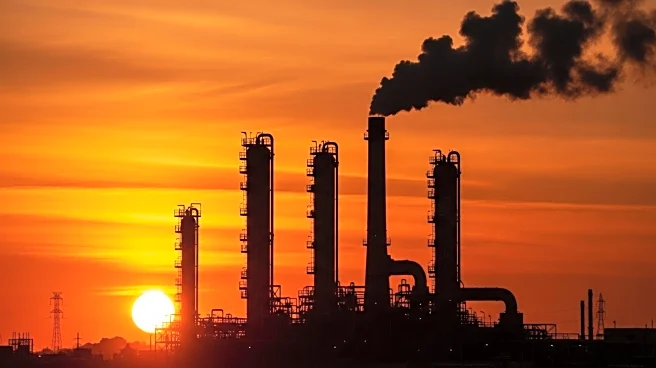What's Happening?
A recent fire at a Chevron refinery has led to predictions of increased gas prices, according to a USC professor. The fire has caused significant disruptions in the refinery's operations, which could result in a 13-cent increase in gas prices for each week the refinery remains offline. This prediction highlights the potential impact on consumers and the broader economy as the refinery plays a crucial role in fuel production and distribution.
Why It's Important?
The potential rise in gas prices could have widespread implications for the U.S. economy, affecting transportation costs, consumer spending, and inflation rates. Higher fuel costs can lead to increased prices for goods and services, as transportation and production expenses rise. This situation may also influence public policy discussions on energy security and the need for diversified energy sources. Consumers and businesses alike may face financial strain, prompting calls for government intervention or support.
What's Next?
As the Chevron refinery works to resume operations, stakeholders will closely monitor the situation. Government agencies may consider regulatory measures to stabilize fuel prices, while industry leaders might explore alternative supply chains to mitigate the impact. Public response could include increased advocacy for renewable energy investments and policy changes to prevent similar disruptions in the future.
Beyond the Headlines
The incident underscores the vulnerability of the U.S. energy infrastructure to unforeseen events, highlighting the need for robust contingency planning and investment in sustainable energy solutions. It may also spark discussions on environmental safety standards and the balance between industrial operations and ecological preservation.









